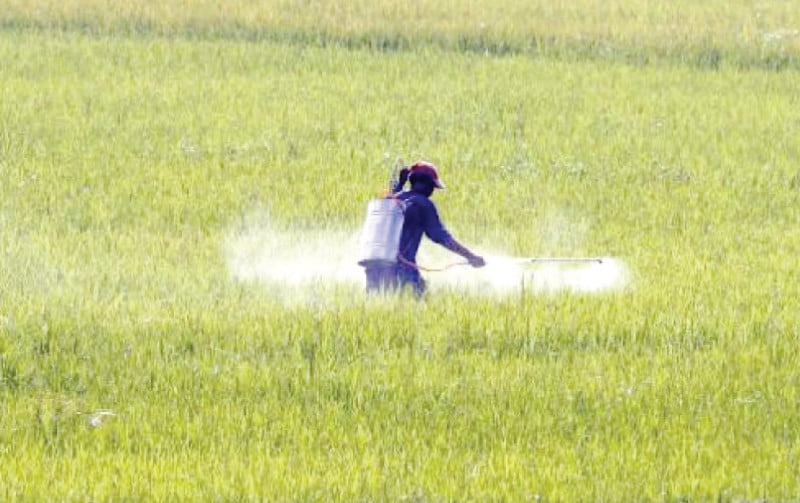ISLAMABAD:
The cabinet has aired serious concerns over alleged fleecing of farmers by fertiliser manufacturers despite getting heavy subsidy on gas supply.
According to sources, the cabinet in a recent meeting noted that a high subsidy was being given to fertiliser companies, but its impact was not being passed on to farmers, who were compelled to buy fertiliser at very high prices.
It was mentioned that there were other factors affecting fertiliser prices such as price control by provinces, curbing smuggling and using tax measures.
It was proposed that the issue of urea supply and prices should be taken up in a separate meeting with all stakeholders to be chaired by the prime minister.
The Economic Coordination Committee (ECC) of the cabinet recently approved a basket price mechanism for locally manufactured and imported urea following refusal by provinces and the finance ministry to share the burden of subsidy.
During the ECC meeting, it was observed that fertiliser manufacturers would charge the cost of financing on their entire production of 6.2 million tons per year, which gave them undue benefits and increased prices of fertiliser.
Furthermore, the relevant ministry should resolve the issue at its end. It was responded that the financing cost would be charged only on 220,000 tons of imported urea.
Regarding the supply of gas to fertiliser manufacturers, the ECC was apprised that as per past practice, the Petroleum Division would assess the existing arrangement and provide gas/ re-gasified liquefied natural gas (RLNG) to them on a “best endeavour basis”.
The cabinet body agreed that National Fertiliser Marketing Limited (NFML) should determine the release price of imported urea while the Finance Division reiterated that no additional subsidy would be provided on the supply of urea, once the proposed basket price mechanism was enforced.
The Ministry of Industries and Production briefed the meeting that the ECC had allowed Trading Corporation of Pakistan (TCP) to import 220,000 tons of urea from Azerbaijan’s Socar company in a government-to-government (G2G) arrangement, which was ratified by the cabinet.
The ECC had decided that the cost of subsidy on imported urea would be borne by provinces. In another decision, it agreed that the recovery of the cost of imported fertiliser would be made from provinces.
Read ECC okays up to 5% increase in urea prices
The government of Punjab conveyed that it would lift the imported urea by sharing the subsidy with the federal government at a ratio of 50:50 while the government of Sindh committed to lifting its share of supply, ie, 52,800 tons (24% of 220,000 tons) on a full-cost basis.
Replies from Balochistan and Khyber-Pakhtunkhwa ware awaited. In a nutshell, provinces were not able to commit to bearing the entire burden of subsidy.
TCP told the meeting that the import of 220,000 tons of urea was estimated to cost Rs27.489 billion and the landed price of a 50kg bag was calculated at Rs6,248.
The Ministry of Industries pointed out that the situation was discussed in a meeting chaired by the prime minister and attended by all four chief ministers as well as federal minister of finance, commerce, national food security and power on January 1, 2024.
It was decided that the locally manufactured urea and imported urea would be treated as one basket. Based on previous practices regarding local urea and full-cost recovery of imported urea, a price matrix would be determined for the local urea manufacturers.
It was agreed that a committee would engage in talks with urea manufacturers and finalise an implementation mechanism. Further discussions were held with the manufacturers and a mechanism for the disposal of imported urea was agreed upon.
Urea manufactures would lift the 220,000 tons of imported urea from the port and NFML warehouses, based on their share of local production as a one-off arrangement.
All incidentals related to lifting and NFML’s associated cost would be built into the current urea prices based on the weighted average sale price concept for cost recovery which would be spread over 12 months by the local manufacturers.
Published in The Express Tribune, January 13th, 2024.
Like Business on Facebook, follow @TribuneBiz on Twitter to stay informed and join in the conversation.

